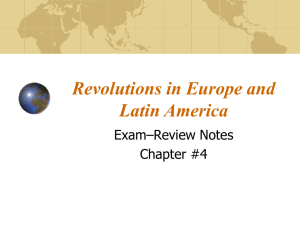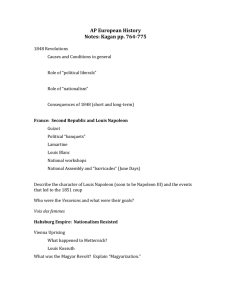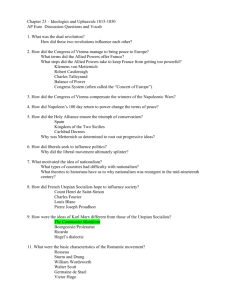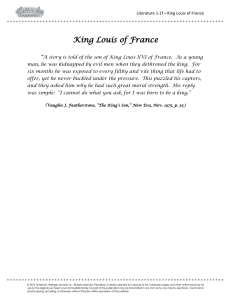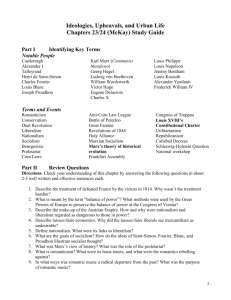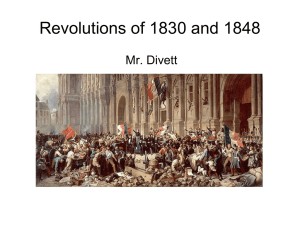THE MID 19 C REVOLUTIONARY PERIOD
advertisement
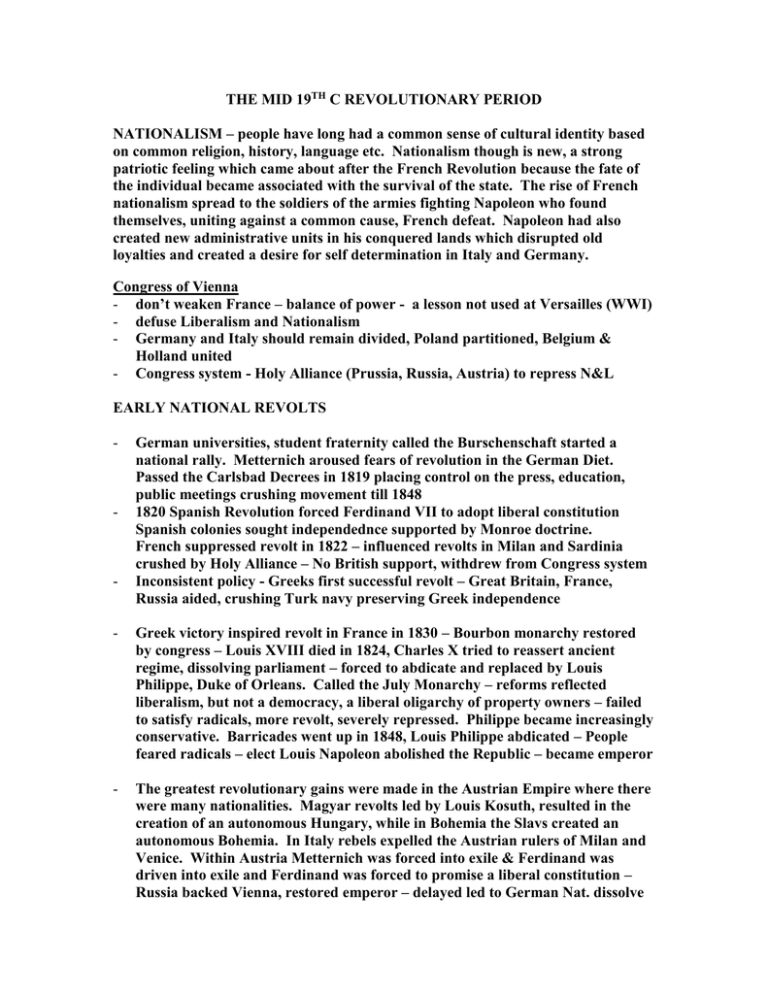
THE MID 19TH C REVOLUTIONARY PERIOD NATIONALISM – people have long had a common sense of cultural identity based on common religion, history, language etc. Nationalism though is new, a strong patriotic feeling which came about after the French Revolution because the fate of the individual became associated with the survival of the state. The rise of French nationalism spread to the soldiers of the armies fighting Napoleon who found themselves, uniting against a common cause, French defeat. Napoleon had also created new administrative units in his conquered lands which disrupted old loyalties and created a desire for self determination in Italy and Germany. Congress of Vienna - don’t weaken France – balance of power - a lesson not used at Versailles (WWI) - defuse Liberalism and Nationalism - Germany and Italy should remain divided, Poland partitioned, Belgium & Holland united - Congress system - Holy Alliance (Prussia, Russia, Austria) to repress N&L EARLY NATIONAL REVOLTS - - - German universities, student fraternity called the Burschenschaft started a national rally. Metternich aroused fears of revolution in the German Diet. Passed the Carlsbad Decrees in 1819 placing control on the press, education, public meetings crushing movement till 1848 1820 Spanish Revolution forced Ferdinand VII to adopt liberal constitution Spanish colonies sought independednce supported by Monroe doctrine. French suppressed revolt in 1822 – influenced revolts in Milan and Sardinia crushed by Holy Alliance – No British support, withdrew from Congress system Inconsistent policy - Greeks first successful revolt – Great Britain, France, Russia aided, crushing Turk navy preserving Greek independence - Greek victory inspired revolt in France in 1830 – Bourbon monarchy restored by congress – Louis XVIII died in 1824, Charles X tried to reassert ancient regime, dissolving parliament – forced to abdicate and replaced by Louis Philippe, Duke of Orleans. Called the July Monarchy – reforms reflected liberalism, but not a democracy, a liberal oligarchy of property owners – failed to satisfy radicals, more revolt, severely repressed. Philippe became increasingly conservative. Barricades went up in 1848, Louis Philippe abdicated – People feared radicals – elect Louis Napoleon abolished the Republic – became emperor - The greatest revolutionary gains were made in the Austrian Empire where there were many nationalities. Magyar revolts led by Louis Kosuth, resulted in the creation of an autonomous Hungary, while in Bohemia the Slavs created an autonomous Bohemia. In Italy rebels expelled the Austrian rulers of Milan and Venice. Within Austria Metternich was forced into exile & Ferdinand was driven into exile and Ferdinand was forced to promise a liberal constitution – Russia backed Vienna, restored emperor – delayed led to German Nat. dissolve
